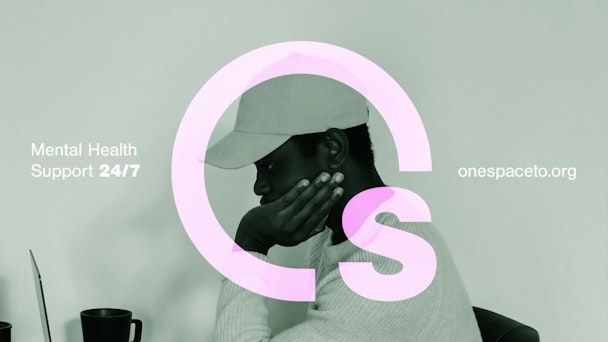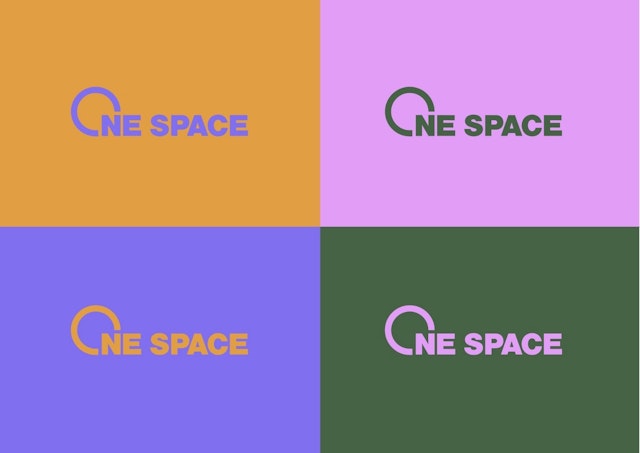Young people are facing a mental health crisis like never before. Can a new brand really help them?
Leading mental health charities have come together to create a space to provide advice and online resources for young people.

And Rising look at the design process behind OneSpace, the online advice space for young people.
Designing something from scratch usually sparks an incredible rush of excitement. But when presented with the results of how the pandemic is impacting people and then asked to help, you’re forced to pause. Mental health surveys show that around one in five people are having problems nationally.
Here’s the scary bit. When you look at a younger demographic specifically, that number rises sharply. Somewhere between three and four in every five young people are currently worried about their mental health.
Designing something around this inevitably won't begin with a team jumping up and fist punching the air. It begins by asking questions, along the lines of “can we do something about it?” and if so, “how?”.
Squaring up to the challenge are the UK’s leading mental health networks: The Mix, Young Minds and Shout 85258, who have combined resources, expertise and tech across this sector.
Together for the first time, they can operate as one service across helpline, social media, face-to-face counselling, dedicated content channels and 85258’s own unique AI-powered text messaging platform (which is one of the most advanced of its kind). Our job was to merge these forces into one cohesive brand that would be recognised quickly and easily by over seven million young people in the UK, whether they were in need of the service or not.
In May, Paula Scher and Pentagram created a new identity for Kenneth Cole’s Mental Health Coalition in the US. This concept was a take on pop-fashion and used an icon or ‘blip’, inspired by 1980s AIDS awareness posters. In other words, the primary goal of their identity was to raise awareness of the issue rather than tackle it head-on. It’s a great piece of work but in many respects, served as a reminder of all the things we shouldn’t do. It acted as a precedent to our project.

We quickly realised that we would need to establish some rules for ourselves. Firstly, we had to make it clear that this is a service brand, not a flag-waving one. Secondly, we didn’t want to create lots of design nuances; people don’t need another tab to open in their brains. Thirdly, we wanted to emphasise that this would be a one-stop-shop, open on any channel. We had to create the feeling that it was a safe space to be.
We decided to embody neutrality; to use it as our guiding value. Remaining neutral is a paradox – you can’t just be neutral – it’s arrived at through very specific and deliberate choices.
So we created a place – a no persons land if you will. ‘One Space‘ was a name that had emerged through detailed conversations between ourselves and the teams at The Mix, Young Minds and Shout 85258. One implies ‘oneness’ whilst Space suggests the creation of space or mental space.
Together, they act as a destination point, a coming together of support services and young people; an inclusion zone, in an otherwise socially-distanced world.

The extended ‘O’ of the logo form is very simple. It represents a safety ring or a halo insulating vulnerable people from negative influences, insecurities and thoughts. Created primarily to be used on social media, it allows the name of the new service to be the most prominent element, while allowing for additional messaging. We used portraits of young people alongside information tabs in the hope that other youngsters would identify it as a service for them.

The colour palette was intentionally calming but distinctive. The brand sits a world away from the primary colours of hazard marking tape and other pandemic-related imagery peppering our news feeds and communities. It doesn’t ask anything of you. It simply meets you openly, confidently and supportively.
At the launch of One Space this week, Chris Martin, chief executive officer of The Mix said that the current situation is “cataclysmic for young people as the silent victims of the pandemic”.
Emma Thomas, chief executive of Young Minds, echoed this: “They miss friends and have lost their coping mechanisms”.
Victoria Hornby, the leader of Shout 85258, agreed: “One Space is providing an accessible portal for [young people] to get the support they deserve, in the right place and time in which they need it.”
Knowing the size of the UK's mental health problem, we hope that One Space will serve as a portal for the UK’s young people to find what they need. In this case, the brand's design acted not as an absolute end goal but as a service. It's not a brand you wear, drink or buy on-line; it’s a shortcut. A button you press for help. Can a brand help young people tackle their greatest mental health challenges to date? Yes, it can.
Jonthan Trimble, founder at And Rising.
Content by The Drum Network member:


